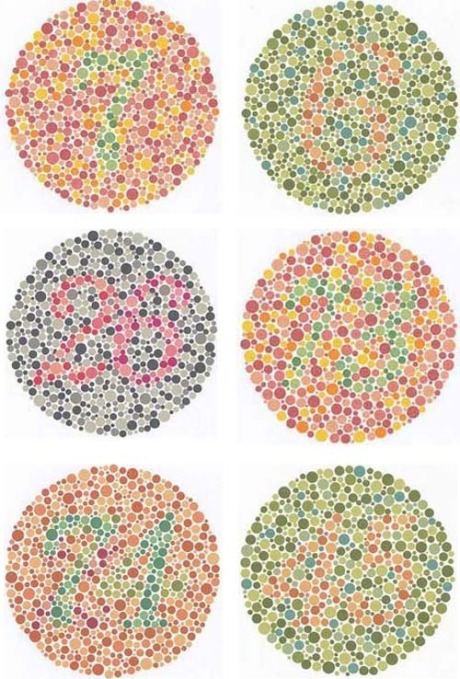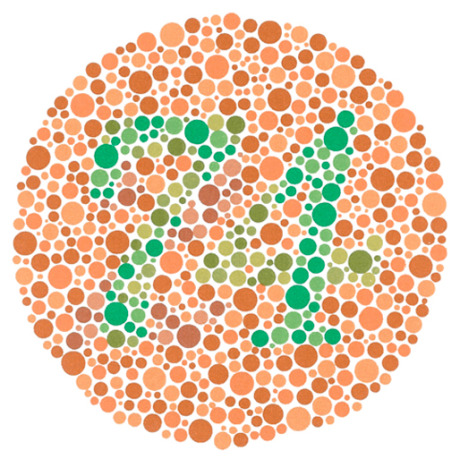The Female Jesus
 Tuesday, September 7, 2010 at 4:00PM
Tuesday, September 7, 2010 at 4:00PM Ben Marcus reads an excerpt of his 2002 novel Notable American Women. (via Conjunctions)

Nicholas Monsour is an artist and film editor born and raised in Los Angeles.
 Tuesday, September 7, 2010 at 4:00PM
Tuesday, September 7, 2010 at 4:00PM Ben Marcus reads an excerpt of his 2002 novel Notable American Women. (via Conjunctions)

 Monday, August 30, 2010 at 9:44AM
Monday, August 30, 2010 at 9:44AM 


IAMPETH (the International Association of Master Penmen, Engrossers and Teachers of Handwriting), which describes itself as "an international, non-profit association dedicated to practicing and preserving the beautiful arts of calligraphy, engrossing and fine penmanship," has an absolutely wonderful, treasure-trove of a website at www.iampeth.com.
Highlights of the IAMPETH's website include the gallery of Master Penmen from the Golden Age of Ornamental Penmanship (replete with biographies and work samples), but by far the greatest thing this site has to offer is a PDF library of dozens of scanned, downloadable rare books filled with beautiful calligraphic designs.
 E.W. Bloser,
E.W. Bloser,  IAMPETH,
IAMPETH,  handwriting,
handwriting,  penmanship
penmanship  Thursday, August 26, 2010 at 12:27AM
Thursday, August 26, 2010 at 12:27AM 
Tibetan Buddha statue made of brass (15th century). Photograph and a neutron radiogram. The radiogram reveals wooden objects and dried flowers hidden inside the statue. Neutrons easily pass through metals and reveal substances containing hydrogen. (Paul Scherrer Institut)
 Friday, August 20, 2010 at 3:45PM
Friday, August 20, 2010 at 3:45PM The Epley maneuver:
The Brandt-Daroff maneuver:
From ehow.com:
Vertigo is a disorder of the middle ear, caused by small crystals that have colonized in a sensitive part of the inner ear. These crystals become displaced, causing the dizziness of vertigo. Usually a physician who specializes in dizziness and balance disorders will perform The Epley or Semont maneuver to help settle the displaced crystals. The Semont maneuver is a calculated and rapid moving exercise, performed only by a doctor in the safety of a doctor's office. Brandt-Daroff exercises are similar to the Epley maneuver, but they can be done at home. These exercises can benefit anyone with dizziness, vertigo, imbalance, lightheadedness or faintness. They are safe and easy to perform.
 Thursday, August 19, 2010 at 1:37AM
Thursday, August 19, 2010 at 1:37AM The Ishihara color test is a test for color blindness. It was named after its designer, Dr. Shinobu Ishihara (1879-1963), a professor at the University of Tokyo, who first published his tests in 1917. It makes use of the peculiarity that in red-green blindness, blue and yellow appear remarkably bright compared to red and green.



 Art,
Art,  Design,
Design,  Natural Philosophy,
Natural Philosophy,  Optics
Optics  Shinobu Ishigara,
Shinobu Ishigara,  color blindness
color blindness  Friday, August 13, 2010 at 9:58AM
Friday, August 13, 2010 at 9:58AM Le roman de renard (or The Tale of the Fox)
By LADISLAS STAREVITCH
1930
(from Wikipedia:)
In the kingdom of animals, the fox Renard is used to tricking and fooling everyone. Consequently, the King (a lion), receives more and more complaints. Finally, he orders Renard to be arrested and brought before the throne.
This is the legendary feature film by Wladyslaw Starewicz (or Ladislas Starevitch, or Ladislas Starewicz, or Ladislaw Starewicz, or Ladislas Starewitch, or Ladislaw Starewitsch). It is also his only one, and he directed it with his wife, Irène Starewicz. The story is an adaptation of a compilation or medieval French legends called "Le roman de renart". It's an entertaining story, a social satire, but most of all a landmark in early animation. I find the stop-motion truly remarkable, even by Starewicz's standards. The facial expressions and the movements are very smooth and fluid.
It had a good reception when it was first released, but as it was wartime people quickly forgot about it. They later exploited in under the form of shorts, since it contains many independent stories with one linking narrative.
 Wednesday, June 2, 2010 at 1:34AM
Wednesday, June 2, 2010 at 1:34AM 
IF YOU STAND IN FRONT OF A LAKE YOU HAVE THE HORIZON AND YOU HAVE THE SHAPES ABOVE AND THE SHAPES REFLECTED IN THE WATER IF THE AREA BELOW THE HORIZON IS JUST REALITY REFLECTED IN THE WATER
— Louise Bourgeois
 Tuesday, June 1, 2010 at 4:12PM
Tuesday, June 1, 2010 at 4:12PM 
Greenpeace worker Lindsey Allen walks past a pool of oil as she collects samples of oil that washed up along the mouth of the Mississippi River south of Venice, La. Wednesday, May 19, 2010. Oil from last month's Deepwater Horizon oil rig explosion in the Gulf of Mexico has started drifting ashore along the Louisiana coast. (AP Photo/Charlie Riedel)
*****
What constitutes a "crime against humanity"? When is an "ecological crime"? not a crime against humanity? These are questions I ask myself when attempting to understand the gravity and consequences of the ongoing Deep Horizon disaster in the Gulf of Mexico, because I am stunned by the absence of discussion of criminal liability for the responsible parties. I know that part of this silence is generated by a lack of established legal frameworks for determining criminal liability in such cases, let alone in actually holding trials and executing judgements.
For those who are curious, like me, crimes against humanity, as defined by the Rome Statute of the International Criminal Court Explanatory Memorandum,
are particularly odious offences in that they constitute a serious attack on human dignity or grave humiliation or a degradation of one or more human beings. They are not isolated or sporadic events, but are part either of a government policy (although the perpetrators need not identify themselves with this policy) or of a wide practice of atrocities tolerated or condoned by a government or a de facto authority. Murder; extermination; torture; rape and political, racial, or religious persecution and other inhumane acts reach the threshold of crimes against humanity only if they are part of a widespread or systematic practice. Isolated inhumane acts of this nature may constitute grave infringements of human rights, or depending on the circumstances, war crimes, but may fall short of falling into the category of crimes under discussion.
The Rome Statute has one paragraph that refers to environmental damages as war crimes: Article 8(2)(b)(iv):
Intentionally launching an attack in the knowledge that such attack will cause incidental loss of life or injury to civilians or damage to civilian objects or widespread, long-term and severe damage to the natural environment which would be clearly excessive in relation to the concrete and direct overall military advantage anticipated;
In a 2001 U.S Army Environmental Policy Report, the authors state that
There are three ways a case may come before the Court: referral by a State Party to the Statute; referral by the UN Security Council; or initiation of an investigation by the Prosecutor of the ICC.
For the court to have jurisdiction, several stringent conditions must be met. The act must be:
- Among “the most serious crimes of concern to the international community as a whole” (Preamble, par. 4, Doc. UN/A/CONF.183/9, 17 July 1998;
- The result of an attack specifically intended to create that damage; “collateral” damage would not come under the Court’s jurisdiction (in the words of one of the interviewees, the Statute “is about war crimes, not mistakes”);
- Launched with the knowledge that it would cause “long-term and severe damage to the natural environment” which would be “clearly excessive” to anticipated military gains; and
- If the above three conditions were met, the principle of “complementarity” would come into play. The ICC will complement national procedures, not replace them. If a country has legal mechanisms to address the crime, and they are functioning properly, the ICC would not have jurisdiction.
- All cases are filtered by a three-judge panel. If a series of frivolous cases flooded the court, they would not pass the panel.
Apparently, many suggestions have been made for the establishment of a specific statute and category for "Enviromental Crimes" to address those most aggregious actions which occurr outside of wartime and whose victims are not considered to be immediately "human". For instance, Mary Clifford proposed a definition of environmental crime in her 1998 book Environmental Crime, as
- A broad philosophical definition: An environmental crime is an act committed with the intent to harm or with a potential to cause harm to ecological and/or biological systems and for the purpose of securing business or personal advantage.
- A practitioners’ definition for a legal framework: An environmental crime is any act that violates an environmental protection statute.
Here's the problem: the rigid distinction between crimes against humanity and environmental crimes (and the relative devaluation of the seriousness of the latter) is absurd. Environments are — in a very tangible and real way — part of what constitutes "humanity" in an individual or group of individuals, and must be considered as such in the constitution of the legal subject. There are established legal dialogues and formulations of the environmental component of cultures (they exist, although they too are still underdeveloped and underrecognized) and yet when it comes to the conception of the "humanity" which is a victim of "crimes against humanity", the undeniable connections of the well-being of human with non-human species, geological and weather conditions with human populations, are ignored — or rather, left out because of their extreme unpopularity with status quo financial and economic international bodies. Is there anybody who lives anywhere near the gulf region who does not feel that the current Deep Horizon disaster constitutes "a serious attack on human dignity or grave humiliation or a degradation"? Is it not abundantly clear that vast numbers of people who live near coastlines that are being developed for off-shore drilling, oil refining and other potentially disastrous scenarios feel that their environmental rights are being degraded?

Despite the fact that environmental protection laws are often put on the books because of their seriousness and the potential effects on humans as well as natural environments and animals — including death in many cases — and despite the fact that it is possible and not uncommon for companies and governments to be held criminally responsible for injuries and deaths of individuals through their infringement of environmental protection laws — there is a massive disconnect between the specific case to the general or systemic which prevents the recognition of the severity and international character of systemic instances of massive environmental damage.

It is true that there are more complicated determinations to be made than others — the factors in determining the parties responsible in climate change and proving their criminality is a massive project (although by no means impossible). But the oil spill in the Gulf is as black and white as they come, if only you actually hold to the letter of the law. Officials within the Obama administration (previous administrations are not exempt, merely not of immediate concern), the EPA, the MMA British Petroleum, Halliburton, Transocean, Chevron, ExxonMobil and other institutions are — without a doubt — guilty of crimes against humanity.

The president and his administration continue to tolerate and condone the systemic practices of massive environmental degradation which kills and injures humans and environments alike. I agree that boycotting BP and other companies makes sense for concerned individuals looking for ways to make a posititve difference in the course of their daily lives. I agree that voting against policies and politicians who support these practices makes sense in the short term. Unfortunately, this is not enough. According to the Institute for Southern Studies, the immediate-to-near term fluctuations in brand loyalty and party politics do not threaten entrenched off-shore oil enonomics:
While the short-term picture for offshore drilling is cloudy, there are few signs that the energy industry intends to move away from offshore drilling -- including deepwater exploration, like that which the Deepwater Horizon rig was conducting before its fateful April 20 explosion.
That's because the offshore drilling industry operates on a different, longer-term cycle than politics. Due to the immense cost and scale of offshore drilling projects, the companies involved operate on multi-year plans and leases, which they have no intention of abandoning after one disaster, even if it is the biggest oil spill in history.
In the short-run, the energy industry is bracing for a series of setbacks: lawsuits, regulations, even temporary drilling bans. For example, on Monday, the Obama administration revealed the details of a six-month moratorium on deepwater drilling (defined as deeper than 500 feet), including some 30 exploratory wells.
But six months is a short time horizon for deepwater offshore drilling projects, which take years to get off the ground. With shallow water drilling showing diminishing returns, the major oil companies view deepwater drilling a fixed part of their future: Deepwater rigs capable of drilling 3,000 or more have increased 43% since 2006.
It is long past the time to consider the implications of not addressing the systemic practices that threaten, harm and kill humans and their environments — not only in protests, boycotts, direct action and democratic referendums — but in the theory and practice of international law.
 Monday, May 31, 2010 at 11:26PM
Monday, May 31, 2010 at 11:26PM 
VOICEsVOICEs is a two piece from Los Angeles, comprised of Jenean Farris and Nico Turner. From their MySpace page: "VOICEsVOICEs create a sempiternal space filled with sounds and imagery that defy what they've been taught, and challenge what you know. A captivating experiment where two drummers, knowing nothing of the machines and instruments they chose to adopt, construct such hauntingly beautiful music, they awaken even your most subconscious dreams and aversions. A sort of existential realization can occur when these two lovely girls envelope you in their rapturous style of melodic, and at times, rough soundscapes."
Dirty Projectors are a Brooklyn-based experimental rock band led by Dave Longstreth. They have released seven full-length albums through 2010. The band currently consists of Longstreth along with Amber Coffman (vocals, guitar), Angel Deradoorian (vocals, keyboard, samples, guitar, bass), Brian McOmber (drums), Nat Baldwin (bass), and Haley Dekle (vocals). This collaboration with David Byrne is from the Red Hot compilation Dark Was The Night.
The Supremes, an American female singing group, were the premier act of Motown Records during the 1960s. This Italian version of "You Can't Hurry Love" comes from the recently reissued double album "Motown Around the World," a collection of Motown's greatest stars struggling to sing classic soul hits in foreign languages.
Molobali Traoré was born on the Niger river in Macina, and a strong defender of the traditions of the Ségou region. Contrary to many artists of her stature she refused to move to the capital Bamako, and instead settled with her husband in Niono. Ironically it was in Bamako where she died of typhoid on September 16, 2009, at the age of only 43. She leaves behind a husband and two children. Although she hardly performed outside of the Niono cercle, she was very popular in the whole of Mali. Her songs were mostly moral, directed at the common Malian. If she was a griot, she was a griot of the common man. The heroes of her songs were farmers, workers of the land.
The Books are an American music duo, formed in New York City in 1999, consisting of guitarist and vocalist Nick Zammuto and cellist Paul de Jong. Their releases contain a combination of electronic music and folk, typically incorporating samples of obscure sounds and speech. They have released three critically-acclaimed albums on the German label Tomlab, and are currently preparing for the release of their latest studio album, The Way Out.
Gareth Williams was a British musician best remembered as the bassist and vocalist for the experimental rock group This Heat, and his project with Mary Currie, Flaming Tunes. From the Flaming Tunes website: "This was a track made by Gareth during the period after the release of the original FT cassette. Again it is built on a fairly cerebral, even mechanical base, with a repeating arpeggio and a descending figure over 12 bars, but the ease of the melody, the humour in the lyrics and the passion of delivery lift it into being one of his most effective songs."
DOWNLOAD THE MP3s:
